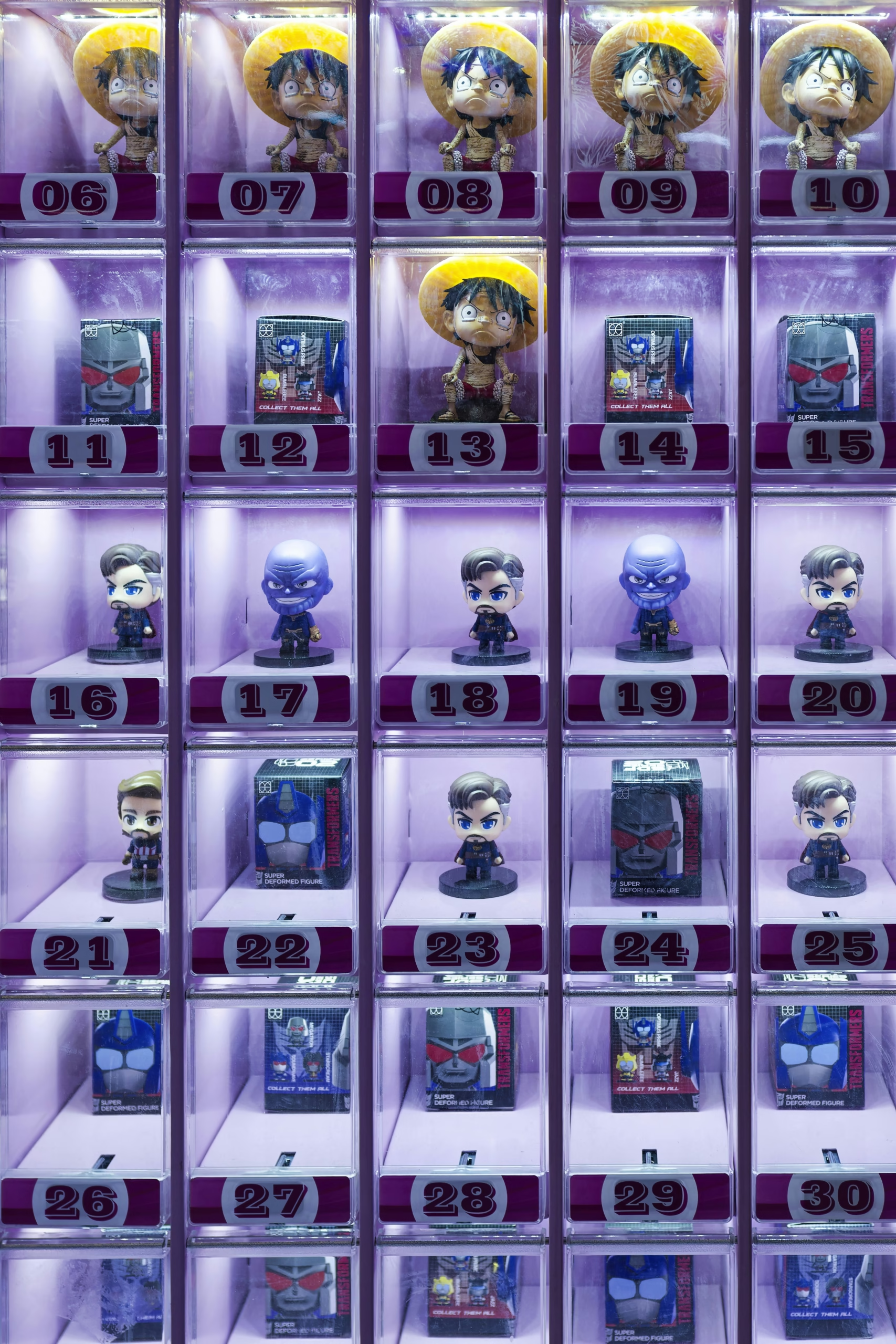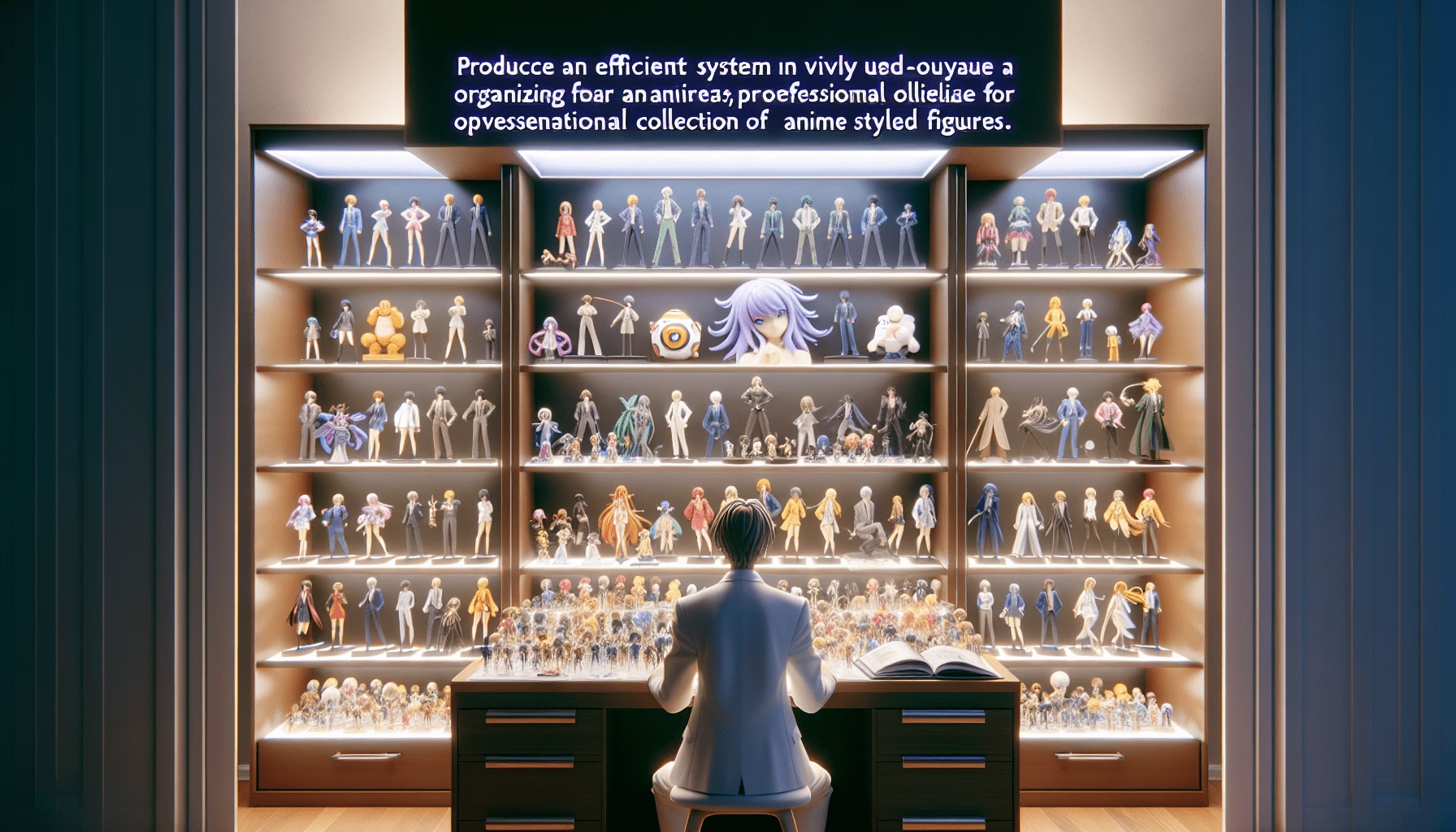Is character collection an art form that reflects one’s love for Japanese animations or merely a hobby of gathering delightful trinkets? For many, the world of anime figure collection straddles the line between passion and investment, embodying both a deep appreciation for anime culture and a professional approach to meticulous curation and management. Understanding the distinction and overlapping between these facets is pivotal for the serious collector. This article delves into the professional methodologies inherent in anime figure collection management, spotlighting how to organize, maintain, and possibly profit through this unique venture, all while optimizing your approach for the modern era.

Table of Contents
Historical and Cultural Background
Anime figures, often meticulously sculpted and painted, are representations of characters from Japanese animated series, films, and comics—known as anime and manga. The inception of anime figure collection dates back to the 1980s when popular shows like “Mobile Suit Gundam” and “Dragon Ball” started producing figures that reached beyond mere merchandising. These figures became symbols of fandom and cultural identity.
Evolution of Anime Figures
In the early stages, anime figures were simplistic, mass-produced items, often distributed as part of promotional campaigns for anime series. As the anime industry grew, so did the complexity and detail of these figures, transforming them into high-quality collectibles. The introduction of limited edition releases, licensed merchandise, and artist collaborations in the 2000s further bolstered the market’s complexity. The figures evolved from being simple toys to art pieces, recognized for their craftsmanship and authenticity.
Cultural Significance
Anime figure collection transcends traditional collecting paradigms by intertwining with personal identity and cultural appreciation. For collectors, each figure is not just a toy; it is a tangible piece of an emotional connection to a series or character. This sentiment makes the world of figure collection not just a hobby but a testament to one’s passion for anime culture.
Key Concepts in Collection Management
Professional management of anime figure collections requires an understanding of several core principles—preservation, organization, and investment.
Preservation Techniques
Collecting anime figures is not merely about acquisition; it also requires knowledge of preservation to maintain the integrity and value of the collection.
- Environmental Control: Figures should be stored in conditions that minimize temperature fluctuations and UV exposure, both of which can degrade paint and material over time. Use enclosed cabinets or display cases to minimize dust exposure.
- Handling: Minimize direct handling to prevent oils from one’s hands from affecting the paint. When necessary, wear cotton gloves.
- Cleaning: Regularly dust figures with a soft brush and, for deeper cleaning, use a gentle soap with a damp cloth. Avoid submerging or scrubbing figures harshly.
Organizational Strategies
Proper organization enhances the visual and practical experience of anime figure collection.
- Cataloguing: Keep a detailed log of each figure, including its release date, edition number, and purchase details. This can be achieved through spreadsheets or specialized apps.
- Display Arrangements: Arrange figures thematically or by series within display cases to create visually cohesive setups. Use varied shelf heights for layered displays.
- Maximizing Space: Employ risers, wall shelves, and sectional dividers to utilize display space efficiently.
Investment and Valuation
Though often driven by passion, anime figure collecting can also be an investments strategy for those acutely aware of market trends.
- Market Research: Stay informed about industry trends and upcoming series that may enhance future figure value. Rare figures from classic series can appreciate over time.
- Limited Editions: Invest in limited edition releases, as these tend to hold their value or appreciate due to scarcity.
- Condition Assurance: Ensure figures remain in near-mint condition and maintain original packaging and certificates of authenticity, which are key factors in resale valuation.

Step-by-Step Guide for Collectors
Step 1: Define Your Collection Goals
Before acquiring new figures, it’s essential to establish a clear vision for your collection.
- Focus: Decide whether your collection will center on specific anime series, character types, or production companies.
- Budgeting: Set a budget for monthly or yearly figure acquisition to manage finances effectively.
Step 2: Analyze Available Space
An understanding of your display environment is crucial for effective collection management.
- Display Options: Evaluate potential display locations—consider using dedicated shelves or custom cabinets.
- Lighting: Implement LED lighting to highlight figures without subjecting them to harmful UV rays.
Step 3: Acquire and Unbox Strategically
Intelligent acquisition and unboxing can preserve the value and condition of your figures.
- Research Before Purchase: Confirm seller credibility and product authenticity for each acquisition.
- Careful Unboxing: When removing figures from packaging, use caution to avoid damaging the figure or packaging.
Step 4: Maintenance and Monitoring
Maintaining an ongoing maintenance routine ensures the longevity of your collection.
- Regular Inspection: Routinely check for any signs of degradation such as fading or awkward tilting in figures.
- Inventory Updates: Continuously update your catalogue to reflect any additions, trades, or sales.
Visual Aids and Display
Art value in anime figures is increasingly recognized in the creation of engaging displays. Utilizing visuals effectively can enhance both appreciation and organization.
Suggestions for Visual Displays
- Infographics and Diagrams: Create infographics or schematic layouts to plan display arrangements. This can help in visualizing the collection before physical arrangement.
- Showcasing Techniques: Explore different angles and elevations to highlight unique attributes of each figure, ensuring a dynamic and engaging presentation.

Case Studies: Successful Collection Management
Real-world examples offer insight into successful strategies employed by seasoned collectors.
Collector Experiences
Consider the case of a collector who transformed a small living area into a thematic display reminiscent of a museum:
- Thematic Groupings: The collector grouped figures by genre and scene, creating a narrative flow in the room.
- Interactive Blog Sharing: Through online blogging platforms, they shared their process with the community, gaining recognition and offering inspiration to other collectors.
Comparative Analysis
Use a comparison table to discern differences in display techniques and their impact on viewer engagement and figure preservation.
| Technique | Pros | Cons |
|---|---|---|
| Thematic Grouping | Enhances narrative and cohesion | Can be restrictive to new figures |
| Height Variation | Adds depth and visibility | Requires specific shelving |
| Color Coordination | Creates visual harmony | Limits figure arrangement options |
Solving Common Collection Challenges
Every collector faces challenges; the ability to solve problems efficiently is key to effective management.
Dealing with Space Constraints
When space is limited, creativity becomes an essential tool.
- Utilize Vertical Space: Install wall-mounted shelves and high cabinets.
- Rotational Displays: Rotate figures seasonally to manage space and provide dynamic visuals.
Handling Limited Editions and Rarities
Investment-focused collectors often face challenges in acquiring and maintaining rare pieces.
- Strategic Bidding: Use auctions and pre-orders for high-demand items.
- Networking: Join collector communities to discover opportunities for trades or lead swaps for coveted figures.

Embracing Future Trends
Anime figure collection continues to evolve, with technology playing an increasing role.
Technological Integrations
New technologies offer innovative solutions and the possibility of transforming collections.
- Smart Displays: Incorporate displays with integrated motion sensors to adjust lighting and sound for particular figures.
- Digital Cataloguing: Utilize apps that allow for 3D scanning, augmented reality views, and value tracking of collections.
Adaptations to Market Trends
Keeping abreast of industry trends ensures collections remain relevant and potentially profitable.
- Subscription Services: Participate in monthly figure subscription boxes for exclusive releases.
- Digitally Inspired Figures: Engage with figures inspired by digital anime adaptations, often debuting unique design elements.
Conclusion and Engagement
Anime figure collection is more than just an extension of fandom; it is a disciplined pursuit requiring thoughtful management and strategic engagement. From preservation and display to investment and technological adaptation, serious collectors find value in both the physical beauty of their collections and the intellectual pursuit of managing them. What challenges have you faced in your collection journey, and how have you innovated to overcome them? For further exploration, consider diving into related topics on efficient cataloguing techniques or artistic display strategies to deepen your understanding and appreciation of anime figure collection management.

Additional Resources
For enthusiasts eager to expand their knowledge and approach to figure collection, consider exploring associated literature and communities:
- Guides and Tutorials: “The Art of Collecting Anime Figures” offers insights into advanced preservation techniques and display strategies.
- Online Communities: Engage with like-minded collectors on forums such as MyFigureCollection.net to share experiences and advice.
The professional methodology for organizing and maintaining anime figure collections provides a comprehensive approach for enthusiasts and investors alike. Through effective management techniques and a keen eye on industry trends, collectors can enjoy their hobby while maximizing potential future gains.

